Scam of the century, (part one)
Monday, 23.05.2011.
13:24

Scam of the century, (part one) For years, individuals and representatives of the government, by various misusages or by wrong-decision management have made huge losses in public enterprises, hence, at the end, the result appears the same as if it were a steal. Large corporations, such as public enterprises dealing with large sums of money, represent in fact, good political loot. Therefore, every change of government assumes also a new power activity distribution within managing boards of the public enterprises, that is, appointments of new chief executive officers (CEO). At the same time, authorized institutions are left without any control albeit public enterprises should provide benefits to all citizens since they were founded by the state. Electric Power Industry of Serbia (EPS), for instance, is the largest public enterprise with a monopoly of electricity genera; their service, that is, electric power, has to be utilized by all citizens. Within EPS there are eleven dependence companies. Any debt made by these companies is included in the aggregate debt of EPS, so at the end, this becomes an additional expense for the state: a company with a constant negative balance sheet is not required to pay taxes on profit. The Insider team has discovered that EPS truly represents the best example of how the system is made wherein there is no control, allowing individuals to take a share in profit and gain at the expense of all citizens. Mining basin Kolubara is an integral part of EPS and at the same time it represents a strategic value for Serbia, since Kolubara coal is used to produce 50% of the total electric power for the country. However, natural resources, also to be enjoyed by all citizens of Serbia, are used by privileged individuals for their own gain. For years, Kolubara’s business operation was not controlled by the authorized institutions, or by EPS whose integral part it is, nor by the Government of Serbia, whose duty, as the representative of the citizens of Serbia, is to control public enterprises. Kolubara’s coal minds and factories outspread on approximately 600 square kilometers. Kolubara operates with enormous sums of money. It is exactly these huge revenues and expenditure in such large systems which allow various possibilities for misuse and steal. The research by the Insider’s team on Kolubara business operations implies this could well be one of the largest scams, even though, at glance, the affairs appear legal. Kolubara’s coal is used to produce almost 50% of electric power in Serbia. For years, the public enterprise Kolubara is engaging coal mining machinery owned by some private companies. According to the Insider’s research, this, however, represents an ideal opportunity to waste money and for the privileged to acquire the gain, becoming richer at the expense of the public enterprise, all due to the state decisions. Merely in the past eight years, the state enterprise Kolubara paid more than 130 million euros to private companies, for coal mining machinery rentals. This amount of money, which ended in the pockets of certain individuals, could have easily bought new set of coal mining machinery. Slobodan Djeric, Kolubara CEO from 2001-2004: Hello there, you politicians, you who run the country into “prosperity”, look here! What kind of impotence of the state this is? What is going on here? And it keeps going. And going on… Nebojsa Ceran, Kolubara CEO: I would rather not use the term “steal”. My task, as a technological manager, was to make cuts, to make saving, to end a bad practice, to break it. I managed to brake down the bad practice of spending forty or fifty million of euros annually for these purposes, I have reduced it to ten, out of which, I say, half is the state’s, half is private from the income, so, is that a steal or not…. B92: Obviously, that is the question of logic. Nebojsa Ceran, Kolubara CEO: That question should be answered by some other people. Largest amounts of money are being extracted from Kolubara through hiring out coal mining machinery owned by individuals and private companies. These are heavy duty coal mining machinery, which Kolubara rents from individuals and private companies, due to supposedly not having enough equipment of its own. These entrepreneurs are mostly privileged individuals who have managed by friendship or political ties to enter into business with the factually state enterprise Kolubara. Until this present day, the authorized institutions have not questioned the drastic rise in expenses used up for renting machinery since 2006. This rise in expenditure was possible because Kolubara business endeavors were not controlled for, while, as we have found out, Kolubara was paying rental coal mining machinery even in cases when a listing shows a machine supposedly operating 24 hours non stop, 31 days in a row. Slobodan Djeric, Kolubara CEO from 2001-2004: The thing you are asking about, just think of it in a simple way. How much was paid for renting machinery, for these last six or seven years, how much, from the amount paid for one year, if instead new machinery was bought, and even now, I claim with a full responsibility, Kolubara has enough of its own operative machinery so it doesn’t need to rent. This is seen by many data. I will, if I have to, repeat a hundred times: the renting of machinery, in this form, as done in the last six to seven years, is an organized industrial criminal. I have to say this because I am sorry, I cannot believe, I was after all a responsible man, I was a CEO of Kolubara for three years, and to put it simply, I feel sorry for Kolubara. Slobodan Djeric was appointed as CEO of Kolubara as a non-partisan solution by the Democratic Party at the end of 2001. He stayed at this position until 2004. Slobodan Djeric claims there is no reason for Kolubara to rent machinery from private companies and individuals in the first place because when he was Kolubara CEO, the enterprise was buying its own machinery, and additionally, it is much less expensive to buy new ones on loan than to rent, if there is a need for additional machinery. In 2003, when Djeric was Kolubara CEO, the enterprise, after more than a decade of accumulated losses, managed to generate positive profit. After the assassination of the Serbian Prime Minister, Zoran Djindjic, Democratic Party of Serbia became the ruling party in the country and hence took charges in appointing new CEO of Kolubara since the strongest party in the Government always appoints directors of this enterprise. Djeric succesor in 2004, Kolubara CEO, became Dragan Tomic. Today he heads the coalition of Democratic Party of Serbia-New Serbia in the City Assembly of Belgrade. It is precisely under his directorship that accelerated increase in expenditure paid for privately owned rental machinery begun, however, no one seemed to be bothered that the same year also experienced a decline in the amounts of mined coal and mullock, a soil covering coal, obtained from the Kolubara coal fields. Dragan Tomic, an official of Democratic Party of Serbia, was Kolubara CEO from 2004 until December 2007. According to the Insider’s research, it is in this period that the Kolubara expenditure for renting privately owned machinery begun drastically to rise. At the same time, as Kolubara CEO, in 2007 Dragan Tomic engaged a machine owned by a private company “Kacer Turist”, wherein he was a majority shareholder. The machine was type Skip, paid, according to the Insider’s sources, around 30 euros per hour. That same Skip operated during many months for an average of ten hours per day, and earned a gain to its owner of at least 250.000 euros. Based on Freedom of Information Law (FOIL)- obtained information, Insider acquired daily reports on engagement of privately owned machinery used in Kolubara. These reports should have listed precise data about engagement and operation of every machine, since the reports were used by Kolubara for payments. However, these documents list that a worker operated a machine of the company “Kacer Turists”, wherein Dragan Tomic was a majority shareholder, allegedly for 24 hours, four days in a row. For instance, on November 16th 2007, Mihailo Marinkovic operated the machine of the Tomic’s company for the whole 24 hours, and in the following days, that same man, with the same machine, continued to work in a shift lasting 16 hours per day. In 2008, when Dragan Tomic was appointed as president of Kolubara assembly, and when at the same time Kolubara was experiencing the greatest expenditures, the same driver, Mihailo Marinkovic, on the same machine, operated non stop for four full days or 96 hours, and in the next days continued to operate 16 hours per day. It appears totally improbable that one man could operate a machine non stop, 24 hours per day, four days in a row, hence a conclusion is imposed that for the driver, machine or both as a matter of fact, what was listed were fictive hours, by which eventually, Kolubara paid to the company of Dragan Tomic. In this same time period, machineries owned by certain individuals were allegedly operating at Kolubara coal fields for 31 days in a month, 24 hours per day. Slobodan Djeric, Kolubara CEO from 2001-2004: What you are saying is fictive, I have to say that under the term fictive I assume listing hours for machineries which do not operate at all. Meaning, many of those machines, the majority of the machines do appear on coal fields, they do work, but they are listed as working 24 hours per day, in three shifts. Absolutely, no machine can do that. Dragan Tomic was Kolubara CEO until December 2007, when he was replaced by another official of Democratic Party of Serbia, Vladan Jovicic. Tomic, in spite the fact that in 2007 Kolubara operated with the largest losses, has advanced in his career and became a deputy to the EPS CEO, the enterprise whose integral part Kolubara is, and whose businesses is suppose to control. It was exactly Tomic, at the time also in the name of EPS, who controlled Kolubara, as a president of the enterprise’s assembly. He was replaced in 2009, a year after the Government was formed by Democratic Party. Dragan Tomic refused an interview with Insider. In a short phone conversation, he claimed he has no knowledge a machine owned by his company ever operated at Kolubara coal fields. Dragan Tomic, in a statement for B92, September 23rd, 2009: It is true that some people made money here- they have made money by working, not by not working. Fictive bills simply do not exist. Moreover, a stunning fact is that the private companies which rented machinery to Kolubara happen to be also registered to operate in different core business activity, hence this additionally points out that authorized institutions do not control money expenditures. This is how it was possible also, in addition to the company “Kacer Turist” registered for hotel services but where Kolubara CEO Dragan Tomic was a majority shareholder, for a company “Deviks”, owned by Vitomir Dimitrijevic and officially registered for metal doors and window manufacturing, to rent auxiliary coal mining machinery to Kolubara. Another company, “Kalca”, owned by a daughter-in-law of Nenad Pavlovic, the driver of Dragan Tomic, also rented machinery albeit the company is registered for auto parts sales; then, “Namestaj enterijer”, a company registered for furniture sales and lighting, a company “Misan” by Jova Jovanovic, registered for accounting and bookkeeping services, company “Sakupljac” owned by Dejan Radosavljevic, registered for recycling. Another startling fact is that Kolubara, a mining enterprise, rented machinery even from a television company “Studio Spektrum” owned by Aleksandar and Radosav Savatijevic. Milivoje Matijasevic, Anti-Corruption Council of Lazarevac: Now, let me ask you a question. How it was possible that company manufacturing furniture gets a job to work in Kolubara, or a catering company, or your colleague who owns a private television? What’s that got to do…if you search through Serbian business registrar agency, and see that an owner of television, registered for radio-diffusion…So, he has nothing to do with construction business or transport. And still, he got the job there, and worked. You don’t really think he got the job because of his good looks. Radosav Savatijevic, nick-named Kene, the owner of television “Spektrum”, was working with Kolubara for years. Supplementary machinery was rented to Kolubara through his company registered for practicing radio-diffusion but also through several other companies. He is a family friend with Dragan Markovic Palma, who also, but through members of his immediate family, operates with Kolubara. Markovic claimed he does not own a single machine but instead trades with coal from Kolubara for the past thirty years. Dragan Markovic Palma is a long time major of Jagodina. His party, United Serbia, together with Socialist Party of Serbia, shares power in the Government, while he is a member of the Parliament. According to information obtained by Insider, albeit Dragan Markovic Palma claimed he does not own machinery nor he rents such to Kolubara, his family members are engaged in the business since 2009, through a company named “Daka”. The company is registered at the same address as “ATV Palma”, a company owned by Palma’s son Dalibor Markovic. The owner of the “Daka” company is Marina Markovic, Dragan Markovic’s daughter-in-law. It is well known, as well, that the Markovics family trades with coal for decades, through the “ATP Palma” company. Nebojsa Ceran, Kolubara CEO: Yes, they are listed as coal buyers. While preparing for this show, believe me, not before that, I firmly believe that things could be arranged only by systematic approach, and not through some individual cases, I’ve checked and there is no name of Dragan Markovic. If there is a company, I think it’s called “Palma”. B92: “ATP Palma” from Jagodina. Nebojsa Ceran, Kolubara CEO: I really don’t know if it’s his company. It is not listed under the major buyers of coal, it is not among the first 10, let’s say. I’ve checked that. I’ve heard from media, just like you have, that he is engaged in the business for thirty years, so, these are the facts. It is not among the first ten. Slobodan Djeric, Kolubara CEO from 2001-2004: Palma, as a top level politician and member of the Parliament, used to visit Kolubara, to support the management. When there was a job advertisement, to appoint a new director of Kolubara, some year and a half ago, Palma visited Lazarevac, hugged the director of Kolubara and said:”A good working team should not be replaced”. Coal from Kolubara is appealing to traders due to the fact that the coal buying price, until 2010, was drastically lower than the selling price of sold coal by the private companies to the citizens and also to the state enterprises and institutions. Dragan Markovic Palma and his friend Radosav Savatijevic are long time coal traders. Who gets to buy coal directly from Kolubara, and the quantities, are decided by a commercial director of Kolubara. This position is held by Radisav Rankovic, a long time member of the Socialist Party of Serbia. B92: It is you, then, who decide on the quantities of coal, who gets how much, they are your coalition partners. Would you say that this does not affect your decisions on how much coal they can buy? Radisav Rankovic, assistant to Kolubara CEO for commercial affairs: You mentioned they are my coalitional partners. I am a member of Socialist party of Serbia and I am not ashamed. I am not ashamed, I am a member of Socialist party of Serbia since the day one, and I will never change my opinion or attitude, ever. There is no point on discussing and commenting on names. Name or surname, I do not recognize name or surname, but I know companies, that is, enterprises engaged in coal supplies from industrial society Kolubara, for further sales and distribution, for consumption. B92: You claim that your coalitional partners do not have a privileged position? Radisav Rankovic, assistant to Kolubara CEO for commercial affairs: I claim with full responsibility, for the mentioned ones, no names, for companies only, that they do not have a privileged position. B92: Do you really think the citizens of Serbia will believe you? Radisav Rankovic, assistant to Kolubara CEO for commercial affairs: I am positive. I’ve already said so a couple of times, that the citizens could hardly believe in so. It is interesting that Radosav Savatijevic Kene and Dragan Markovic Palma came from the same political party, whose founder was Zeljko Raznatovic Arkan. In 2002, Savatijevic was even a member of the Parliament, representing Party of Serbian Unity. He engaged for years in coal trading from Kolubara and had private machinery rented to the enterprise. Also, as Insider found out, the police had filed several criminal charges against Savatijevic but it appears those charges were cleared since there is only one judicial procedure at the time, according to the First Public Prosecutors Office. Still, there are strong friendly and business ties among Dragan Markovic Palma and Savatijevic: according to the Insider best knowledge, it was Dragan Markovic Palma, who, after the creation of the current Government, helped an appointment of Kene- an owner of private company working with Kolubara for years- into EPS Board of Management. What was achieved in this way is that they actually got to control the business pursuits themselves, since Kolubara is an integral part of EPS. Both of them, Dragan Markovic Palma and Radosav Savatijevic Kene refused an interview with Insider. Since becoming a member of EPS Board of Management Savatijevic does not deal with Kolubara through companies registered in his name. However, Insider came to inspect contracts and statements regarding engagement of machinery in Kolubara which Savatijevic still signs in the name of the companies not formally under his ownership. According to these documents, Savatijevic signed a contract for machinery engagement in the name of the company where his own daughter is minority shareholder even though he was, already a year long member of EPS Board of Management. Another stunning fact that Insider discovered is while Kolubara was operating with huge losses, at the same time it was also renting supplementary machinery, paying for years even 150 euros per hour. Hence, if a machine was employed at coal fields for eight hours, multiply by average 100 euros- that is 800 euros per day, multiply by 30 days, meaning that a machine owned privately earns around 24.000 euros per month. Often, a machine paid off its value in a couple of moths since private companies usually bought used machinery in the first place. It has happened that a machine was employed for 24 hours, for the whole month. Even more troublesome is that there are just enough reasons to assume those machineries were employed only fictively, that is, Kolubara was paying even when machinery was not operating. Slobodan Djeric, Kolubara CEO from 2001-2004: If you would, let’s suppose, see that Kolubara rented for one day 200 machines and vehicles, then if you would go and inspect those companies, to see how many registered employees they have, for instance. Well, those companies don’t have them. Next, you could inspect how many kilometers they averaged, to see how much fuel they used. Of course, you cannot do that, but I dare to say so, since I know all about it. Renting machinery, I will repeat if I have to a 100 times, is an invented affair in Kolubara in order for individuals to thrive inside Kolubara. I don’t disapprove private companies, on the contrary, I support entrepreneurship initiative, but renting machinery is an invented affair used for criminal purposes. The system of misuse is well elaborated, and in order to work out, many people have to collaborate in this chain, aided by a mutual connive from the Government of Serbia, allotted by duty to control endeavors of all public enterprises. According to our research, in order to be involved in this business, machinery owners have to have a connection, someone at the top level in Kolubara, or they have to be politically connected. When a machine starts working at coal fields, a chief of shift is suppose to control its operating hours. In this position, a supervisor could sign that the particular machine was operating for 24 hours, even though it fulfilled only 8 operating hours, or did not operate at all. According to our information, the connection man usually takes on a part of profit, at least 10%, but others, like supervisors in various positions also took their own part of the cake. At the same time, the majority of machinery owners, thanks to their connections, have a privilege to buy coal directly from Kolubara, and to resell it later on, on much higher prices to other public enterprises, state institutions, but also to citizens. These same players, even today, make money at the expense of Kolubara, and the system of scam remains almost unchanged. In addition to machinery used in coal mining process, Kolubara also rented and paid for privately owned machinery used for infrastructure and road building in municipalities. It turned out, however, that Kolubara paid much more than for what was actually built. That is why Anti-corruption Council from Lazarevac filed a criminal charge to Special Prosecutors Office for Organized Crime. Milivoje Matijasevic, Anti-corruption Council from Lazarevac: The problem is that some people, for some small sums of money, have helped these others who invented the system, to list that they were working, to do something, to do money laundering some 2/3 of the amount, so that money can flow into pockets of individuals or maybe into pockets of political parties…Corruption was present, as well as fictive work. Where money ended up, I could only guess. On one hand, all these surely must have been known to Kolubara CEO, always appointed as a party personnel, responsible to monitor how realistic were the expenses for rental machinery. At the time of largest expenses, the appointed directors of Kolubara were all party personnel of Democratic Party of Serbia, namely Dragan Tomic and Vladan Jovicic. The drastic rise in expenditure should have alarmed Vladimir Djordjevic, at the time EPS CEO, also from Democratic Party of Serbia. Djordjevic refused to be interviewed. Kolubara total loss, resulting from enormous expenses paid for rental machinery is included in the total loss of EPS. Therefore, EPS Board of Management should have reacted too; its president at the time of greatest expenses was Petar Knezevic from Democratic Party. Today, Knezevic is a director of Thermal Power plants “Nikola Tesla”, and he too, refused an interview with Insider. On the other hand, the whole business pursuits of EPS as well as Kolubara are under the care of Minister of Energy. At the time of the greatest expenses for rental machinery, the function was held by Radomir Naumov and later Aleksandar Popovic, again party personnel of Democratic Party of Serbia. Both refused to be interviewed. Finally, the Government of Serbia is responsible for reports; at the time, Vojislav Kostunica headed the Government, but in his second term, in 2008, responsibility was shared among Democratic Party of Serbia and Democratic Party. A year and a half ago, Dragan Djilas, the major of Belgrade, stated Kolubara is the melting pot of corruption and criminal, and his statement points out that the government is well aware of what is going on in this enterprise. In spite of this fact, until present, there were no direct actions taken by the authorized institutions. According to Insider information, in 2009, after the appointment of the new executives in EPS, the endeavors of Kolubara were put under investigation by internal committee control, formed by the new director of EPS, Dragomir Markovic, a party activist of Democratic Party. The committee report, according to our information, lists numerous malpractices in endeavors of all dependence companies of EPS, including Kolubara. And since the public has the right of access to business pursuits of all public enterprises, Insider has asked EPS to provide the internal committee report. However, our request has been denied, with an explanation that the report has reached EPS Board, but that it is returned to be finished, and its ratification is being expected some of these days. Until then, the public has no right of access to it. The EPS director refused an interview with Insider. And while the public is waiting for the report of internal committee control, Insider, based on Freedom of Information Law (FOIL)-obtained information, deduced that the greatest expenses for rental machinery were in 2008, when Kolubara CEO was Vladan Jovicic. Regardless of the drastic expenditures, he is still being held at the top level position in Kolubara, and today, he performs as an executive director. He claims that Dragan Tomic, his predecessor, should be held partially responsible for such high expenditures. Both were appointed by Democratic Party of Serbia. B92: Could you explain us why there was such a drastic increase in expenditures for renting machinery? Vladan Jovicic, Kolubara CEO from 2007-2009: Well, to some extent, because I’ve come into such contracts when I took the position of Kolubara CEO at the end of December in 2007, more precisely, on December 27th. On the other hand, during 2008, we carried out a melioration of the river Kolubara, and we were preparing for melioration of the Pestan River. B92: In the beginning of the year, there was an estimated budget for renting machinery, but it did exceed planned? Vladan Jovicic, Kolubara CEO from 2007-2009: That’s true. To put it simply, folks here understand easily when you say that someone is a thief. And everybody understands what it is, but no one knows what sustainable development is, no one knows what it means to respect certain geo-mechanical conditions of exploitation. Among other things, weather conditions considerably influence a demand for machinery, but this still cannot explain a constant and drastic rise of the expenses, or engagement of machinery for 24 hours, 31 days in a row. Insider came to daily logs, listing among other things, a bulldozer supposedly working the full 24 hours, 31 days in a month. In that sole month, if the machine was paid 100 euros per hour, a respective owner of the bulldozer could have earned 74.000 euros. Some of the machineries listed as working continuously for the whole month are owned by a company “Devix”. Vitomir Dimitrijevic, the owner, is one of the major entrepreneurs, his family deals with several other companies in Kolubara, and aside from machinery, he is engaged in coal trading. Vitomir Dimitrijevic, “Devix” company, Lazarevac: Here, I will explain it to you, although it is not it…It is simple and plain- if you have capable machinery, rotate 3 crews in 24 hours, then it could work. A dredger works, one of them- roto dredger- non stop, 24, 80 hours etc. So, this is possible, if you have a basic machine in good working order, if you have… B92: Still, something is strange, iffy, the bulldozer worked for 31 days in a month. It’s quite impossible for any machine to operate such a long time? Vitomir Dimitrijevic, “Devix” company, Lazarevac: It is very possible, why not, 31 days, for 24 hours, that’s 700 and something hours. Then, when there is a service, but I never did service, I just bring in another machine, unload, I upload my machine, then do a service. And I never did services right on a spot, on coal fields, but in my own service shops. Hence, that is absolutely possible, if a machine is in technically working mode. B92: Please, help me to understand better: if that bulldozer was working for 31 days, do you perhaps remember, what was the cost per the working hour? Vitomir Dimitrijevic, an owner of “Devix” company, Lazarevac: Not exactly. B92: Not even roughly speaking? Vitomir Dimitrijevic, “Devix” company, Lazarevac: No. B92: Let’s say the average was 100 euros… Vitomir Dimitrijevic, “Devix” company, Lazarevac: I don’t think it was, it was somewhat lower. B92: OK, but in every case possible, that machine could have earned a lot of money. Could you tell, please, if you know, what is the price for that kind of bulldozer, i.e., the cost? Did you buy new, or used, if you could explain this to us? Vitomir Dimitrijevic, “Devix” company, Lazarevac: There are additional expenses you know. You have, for example, let’s s say, expenses about 60 % for fuel, then lubricating oil, then service, then amortization, then drivers. So, this isn’t just so, well it is, when you look at it all together, gross-earnings, per 700 hours, I don’t know how much money, and that’s that. Machinery engagement reports were all signed by the Kolubara supervisors. Those reports, however, do not list if some of the machineries were replaced nor there is a registration plate number per machine. According to our research, it is theoretically impossible for a machine to operate at coal fields for the full 24 hours, since solely in the morning shift, the busiest one, there are a couple of idle running hours. According to our finding, there is a regular break lasting half an hour, then half an hour for fuel recharge, while the supervisors need at least an hour to plan daily activities. The mentioned machine worked in July 2008, when Kolubara CEO was Vladan Jovicic. Although the expenses for rental machinery were the greatest in this period, Jovicic claims this is the first time he has laid eyes on these reports. B92: Here, let me show you. This here is one and the same machine, which was working 24 hours per day, 31 days in a month. Let me ask you this, is this a misuse or not? Is this possible or not? Vladan Jovicic, Kolubara CEO from 2007-2009: I can see here that it’s 31 days in a month, I can see what’s written here, and I simply claim about these written here that it’s better for them to be responsible, this should be answered by those who signed, and based on these, made the invoice. B92: So, personally, you don’t feel responsible for these things, and think this is possible? Vladan Jovicic, Kolubara CEO from 2007-2009: I do think this is possible if they are all here, and they are fairly responsible people, according to the signatures I see here- they are not shoe-makers, or somebody unknown, but simply they are presently employed, holding the same positions today. These are the directors of various departments.. Hence, I know which one is “Devix” company, I know it’s fairly serious company in Kolubara. B92: The same company owning machinery capable of working 24 hours per day, 31 days in a month? Vladan Jovicic, Kolubara CEO from 2007-2009: When I say serious, I mean the company always had good quality machinery. B92: So, its machineries were of such a good quality, they could operate non stop? Vladan Jovicic, Kolubara CEO from 2007-2009: The obvious- we determined together, since I’ve never before seen this document, this is simple and clear to everybody, this is phony, simply impossible. Slobodan Djeric, Kolubara CEO from 2001-2004: Do you know what a result is? The result is that the bulldozer should have earned, for that year, 1 million euros. Like in a saying: “Don’t ask how I earned my first million”. In the meantime, I think in August or so, its cost went down, so it earned around 800.000 euros or so. Hey, you have 1 million euros to pay for renting one machine, a machine working effectively 24 hours per day on a yearly basis, but you don’t have 100.000 euros to buy a new machine. What is this telling you? The strongest evidence supporting the assumption Kolubara never actually needed privately owned machinery for 24 hours per day, is that such practice is banned by the new CEO. B92: Are there some machinery in Kolubara today which operate 24 hours, 31 days in a month? Nebojsa Ceran, Kolubara CEO: I sincerely hope not so. B92: Are you monitoring? Nebojsa Ceran, Kolubara CEO: It is, according to all rules, outlawed. A contract envisages that machinery could be paid per 7 and a half hour per day, at maximum, while supervision is envisaged by procedure. Kolubara has its own procedures, business ones, hence this way of organizing control is also envisaged by a procedure. It is simple as this: a schedule is assigned to each machine a day early, I think that coal fields manager does this, so a machine gets its schedule for the next working day. Then, in the morning, again… B92: But this procedure was in effect earlier, wasn’t it? Supervision. Is this that same one procedure, or you have changed this procedure of control? Nebojsa Ceran, Kolubara CEO: A good deal of procedures, business procedures has been changed in Kolubara. I cannot answer you question with firm certainty, if this procedure was also altered or not. Ceran became Kolubara CEO succeeding at that position Vladan Jovicic, during whose mandate expenses for privately owned rental machinery were the greatest. Despite this, Jovicic is still an executive director of Kolubara. This is similar to the situation when Jovicic became Kolubara CEO, while his precursor Dragan Tomic, responsible for drastic rise in expenses paid for privately owned rental machinery, kept a top level position. Instead of sanctions, Tomic was awarded by becoming a deputy EPS CEO, and at the same time, a president of Assembly of Dependence Company Mining Basen Kolubara. Holding these two positions, Tomic could easily influenced endeavors of Kolubara. Insider has managed to obtain a fax that lists all the companies renting machinery to Kolubara. Nick names, instead of the respective owner names are listed here, in hand writing, such as “son of Vita Gusan (Goose)”, “Karan”, “Bosanac (Bosniak)”, ‘Tica”, “Grof (Count)”. According the several sources, the signature above these companies belongs to Dragan Tomic. Considering that Tomic refused an interview with Insider, it remains unclear if the signature is significative of the companies staying in business. At the time, Kolubara CEO was Vladan Jovicic, who claims that Tomic never pressured him about anything. B92: How would you call this? This is a fax, do you recognize the initials on the side? Vladan Jovicic, Kolubara CEO from 2007-2009: Yes, Dragan Tomic. B92: So, you’ve never seen such a paper? Vladan Jovicicc, Kolubara CEO from 2007-2009: No, I’m trying right now… OK, except for the date, but I don’t see… I’m trying to see, sincerely, to tell you, to investigate some… B92: That’s OK, we could analyze it later. Vladan Jovicic, Kolubara CEO from 2007-2009: Wow! B92: Why did you say “Wow”? Vladan Jovicic, Kolubara CEO from 2007-2009: Well, nothing, I said “wow” because I was looking for a phone number the fax was sent to. B92: Whose phone number it is? Vladan Jovicic, Kolubara CEO from 2007-2009: According to this, it came to the phone number belonging to assistant of technical affairs. B92: Who’s that? Vladan Jovicic, Kolubara CEO from 2007-2009: Well, it’s Mr. Vulicevic, while I was, this is about May 2008… B92: You didn’t know that your assistant of technical affairs received this paper? Vladan Jovicic, Kolubara CEO from 2007-2009: Well, it appears I was such a fool to believe that everything I signed for was genuine, and then later on, it turned out it was signed at coal fields, the same for the contracts on engagement of machinery, through services the same… B92: So, you want to say… Vladan Jovicic, Kolubara CEO from 2007-2009: I want to say that this was executed by the current deputies and technical directors, they are the ones who did this! That’s why I said they are the same. So, this is the whole story. At the end, those responsible for this affair should take a liability, even if it’s Vladan Jovicic who did it. But, a core essence is that all those people are still in the same position, or some even have advanced, obviously have advanced further. Vladan Jovicic reaction clearly points out that the system in Kolubara is composed in such a way, that even a CEO did not know what was going on within the enterprise, what were his assistants doing or from whom they were getting instructions. Unlike Vladan Jovicic, Dragan Tomic refused several times to be interviewed for Insider. Therefore, you will not find out the answer to the question if he, from his presidential position in Assembly of Kolubara, ever influenced business pursuits of Kolubara, even without the actual knowledge of Vladan Jovicic, the CEO at the time. B92: Those people, even today hold the same or other important positions. Why? Nebojsa Ceran, Kolubara CEO: Kolubara is a difficult, inert system that does not handle improvisations well hence you cannot play with it. I came to the position from EPS, with 20 years of working experience in Thermo plant Obrenovac. I don’t know these people, but I am sure Kolubara certainly has even better people than these, better than me probably. I’m working on it, to recognize and give a chance to younger, open-minded, interesting people in Kolubara. Some, I’ve managed to advance, some I plan to do so. The analysis of Kolubara official reports, based on FOIL-obtained information, shows striking levels of unjustified and unrestrained waste of resources within this public enterprise. Namely, while the expenses for privately owned rental machinery drastically increased, the amount of obtained coal remained more or less at the same level. Slobodan Djeric, Kolubara CEO in 2001-2004: Here, take just one fact. The new CEO, appointed a year and a half ago or so, publicly claimed that he had reduced the rental from, if I remember correctly, 50 million of euros at the annual level to only 10 million. And that the rental costs went down too. This speaks for itself- while nothing has changed in the technology of coal mining- implying that 4/5 of the previous rentals was unnecessary. During the years from 2003 to 2008 the costs for rental machinery increased enormously, year after year, so in 2008, the total cost reached 53 million euros, which is 20 times more than the sum spent in 2003. At the same time, albeit these expenses, coal production increased for only 5 million tons. During some years, the sources Kolubara invested in the privately owned rental machinery did not even follow increase in production. In 2006, in comparison with 2005, the production went slightly down, while the expenses for machinery, instead of 3.8 million euros, were 17.5 million euros. 2007 and 2008 are the two most interesting years, when unbelievable 83.3 million euros were spent: 30.3 million in 2007 and 53 million in 2008. These two years were the election years in Serbia. Directors/CEOs deciding on these costs were appointed by party coalitions in power. In 2003, when the cost of rental machinery was lowest, CEO at the time was Slobodan Djeric, non-partisan, but appointed at the request of Democratic Party, when Zoran Djindjic was Prime Minister. The first government of Vojislav Kostunica appointed Dragan Tomic as Kolubara CEO, a party official of Democratic Party of Serbia. During his mandate, the expenses increased ten times, from 2.9 million euros to 30 million euros. After the 2007 election, Vladan Jovicic became Kolubara CEO, also a party official from Democratic Party of Serbia. At that time, expenses for rental machinery, as well as losses, were the greatest. B92: This is interesting, you mentioned a few times that you’ve lowered the costs for rental machinery. Vladan Jovicic, Kolubara CEO from 2007-2009: That’s right. B92: It is logical, if the costs went down while you were CEO, in comparisons with the previous period, a question poses by itself: were those costs exaggerated? New CEO additionally lowered the costs? Vladan Jovicic, Kolubara CEO from 2007-2009: This is all dictated, still, by the scope and amount of work, and offers. If you have more than one possibility, then, things will be usually less expensive. If you have a monopoly, or conditional monopoly, then you can set costs high as much as you want. B92: So you are saying that you followed only market rules and laws? Vladan Jovicic, Kolubara CEO from 2007-2009: Yes. And everything else what was happening in the milieu of similar companies, in the industrial milieu, I wasn’t inventing “let’s cut the costs for 30% or 15%”, that was just happening. On the other hand, the effect of lowering costs, let’s say, it’s quite inert, already, some months in 2009, showed that the scope of rental decreased in monetary way. Slobodan Djeric, Kolubara CEO in 2001-2004: The first thing I have done after my appointment in July, in the first weeks of my mandate, I’ve asked from people, technical department, professionals, to approximate the minimum number of machines needed for the production process. It is true that we reduced the costs for rentals, the total rent was reduced for more than 30 million euros at the annual level. This year, in comparison with 2008, while the production is nearly at the same level, 29.5-30 million tons of coal. B92: But if we say that you spend today about 30 million euros less than in 2008.2007 also had huge expenses, for rental machinery. Hence, we can say today it was a classic steal? Slobodan Djeric, Kolubara CEO in 2001-2004: I would not dare to comment it like that. Simply, these are the facts. Also, the fact is that Kolubara, in the meantime, has acquired some machinery, and I say again, mining is changing, so one should definitely look and scrutinize that year, and then decide what was going on. A key explanation put forward to explain the drastic increase in expenditures from 2006, used by the former Kolubara managers, is that from the time on, Kolubara had invested considerably in infrastructure work and development, in municipalities surrounding coal fields. It turned out, however, that Kolubara was paying much more then it was actually done in terms of real work. According to the Insider research, starting from 2004, privately owned rental machinery solely pulled out from Kolubara around 130 million euros. At the same time, during these years Kolubara operated with huge losses. Money went into accounts of the private companies, whose machinery Kolubara was overpaying regardless of whether they were actually working or not. In the meantime, all the players have become so bounded that they now protect each other. Even when a new CEO is appointed in order to improve business endeavors, matters remain complicated since the former employees who have made losses are transferred to other positions within the same enterprise. Therefore, it is clearly justified to ask a question: is percentage of the profit taken by many players the real reason for mutual protection, but also the reason why the authorized institutions are silent for years? Scam of the century, Part I For years, individuals and representatives of the government, by various misusages or by wrong-decision management have made huge losses in public enterprises, hence, at the end, the result appears the same as if it were a steal.
Scam of the century, (part one)
For years, individuals and representatives of the government, by various misusages or by wrong-decision management have made huge losses in public enterprises, hence, at the end, the result appears the same as if it were a steal.Large corporations, such as public enterprises dealing with large sums of money, represent in fact, good political loot. Therefore, every change of government assumes also a new power activity distribution within managing boards of the public enterprises, that is, appointments of new chief executive officers (CEO). At the same time, authorized institutions are left without any control albeit public enterprises should provide benefits to all citizens since they were founded by the state.
Electric Power Industry of Serbia (EPS), for instance, is the largest public enterprise with a monopoly of electricity genera; their service, that is, electric power, has to be utilized by all citizens. Within EPS there are eleven dependence companies. Any debt made by these companies is included in the aggregate debt of EPS, so at the end, this becomes an additional expense for the state: a company with a constant negative balance sheet is not required to pay taxes on profit.
The Insider team has discovered that EPS truly represents the best example of how the system is made wherein there is no control, allowing individuals to take a share in profit and gain at the expense of all citizens. Mining basin Kolubara is an integral part of EPS and at the same time it represents a strategic value for Serbia, since Kolubara coal is used to produce 50% of the total electric power for the country. However, natural resources, also to be enjoyed by all citizens of Serbia, are used by privileged individuals for their own gain. For years, Kolubara’s business operation was not controlled by the authorized institutions, or by EPS whose integral part it is, nor by the Government of Serbia, whose duty, as the representative of the citizens of Serbia, is to control public enterprises.
Kolubara’s coal minds and factories outspread on approximately 600 square kilometers. Kolubara operates with enormous sums of money. It is exactly these huge revenues and expenditure in such large systems which allow various possibilities for misuse and steal. The research by the Insider’s team on Kolubara business operations implies this could well be one of the largest scams, even though, at glance, the affairs appear legal.

Merely in the past eight years, the state enterprise Kolubara paid more than 130 million euros to private companies, for coal mining machinery rentals. This amount of money, which ended in the pockets of certain individuals, could have easily bought new set of coal mining machinery.
Slobodan Đerić, Kolubara CEO from 2001-2004: Hello there, you politicians, you who run the country into “prosperity”, look here! What kind of impotence of the state this is? What is going on here? And it keeps going. And going on…
Nebojsa Ćeran, Kolubara CEO: I would rather not use the term “steal”. My task, as a technological manager, was to make cuts, to make saving, to end a bad practice, to break it. I managed to brake down the bad practice of spending forty or fifty million of euros annually for these purposes, I have reduced it to ten, out of which, I say, half is the state’s, half is private from the income, so, is that a steal or not….
B92: Obviously, that is the question of logic.
Nebojsa Ćeran, Kolubara CEO: That question should be answered by some other people.
Largest amounts of money are being extracted from Kolubara through hiring out coal mining machinery owned by individuals and private companies. These are heavy duty coal mining machinery, which Kolubara rents from individuals and private companies, due to supposedly not having enough equipment of its own. These entrepreneurs are mostly privileged individuals who have managed by friendship or political ties to enter into business with the factually state enterprise Kolubara. Until this present day, the authorized institutions have not questioned the drastic rise in expenses used up for renting machinery since 2006. This rise in expenditure was possible because Kolubara business endeavors were not controlled for, while, as we have found out, Kolubara was paying rental coal mining machinery even in cases when a listing shows a machine supposedly operating 24 hours non stop, 31 days in a row.
Slobodan Đerić, Kolubara CEO from 2001-2004: The thing you are asking about, just think of it in a simple way. How much was paid for renting machinery, for these last six or seven years, how much, from the amount paid for one year, if instead new machinery was bought, and even now, I claim with a full responsibility, Kolubara has enough of its own operative machinery so it doesn’t need to rent. This is seen by many data. I will, if I have to, repeat a hundred times: the renting of machinery, in this form, as done in the last six to seven years, is an organized industrial criminal. I have to say this because I am sorry, I cannot believe, I was after all a responsible man, I was a CEO of Kolubara for three years, and to put it simply, I feel sorry for Kolubara.
Slobodan Đerić was appointed as CEO of Kolubara as a non-partisan solution by the Democratic Party at the end of 2001. He stayed at this position until 2004. Slobodan Đerić claims there is no reason for Kolubara to rent machinery from private companies and individuals in the first place because when he was Kolubara CEO, the enterprise was buying its own machinery, and additionally, it is much less expensive to buy new ones on loan than to rent, if there is a need for additional machinery. In 2003, when Đerić was Kolubara CEO, the enterprise, after more than a decade of accumulated losses, managed to generate positive profit.
After the assassination of the Serbian Prime Minister, Zoran Đinđic, Democratic Party of Serbia became the ruling party in the country and hence took charges in appointing new CEO of Kolubara since the strongest party in the Government always appoints directors of this enterprise. Đerić succesor in 2004, Kolubara CEO, became Dragan Tomić. Today he heads the coalition of Democratic Party of Serbia-New Serbia in the City Assembly of Belgrade. It is precisely under his directorship that accelerated increase in expenditure paid for privately owned rental machinery begun, however, no one seemed to be bothered that the same year also experienced a decline in the amounts of mined coal and mullock, a soil covering coal, obtained from the Kolubara coal fields.
Dragan Tomić, an official of Democratic Party of Serbia, was Kolubara CEO from 2004 until December 2007. According to the Insider’s research, it is in this period that the Kolubara expenditure for renting privately owned machinery begun drastically to rise. At the same time, as Kolubara CEO, in 2007 Dragan Tomić engaged a machine owned by a private company “Kačer Turist”, wherein he was a majority shareholder. The machine was type Skip, paid, according to the Insider’s sources, around 30 euros per hour. That same Skip operated during many months for an average of ten hours per day, and earned a gain to its owner of at least 250.000 euros.
Based on Freedom of Information Law (FOIL)- obtained information, Insider acquired daily reports on engagement of privately owned machinery used in Kolubara. These reports should have listed precise data about engagement and operation of every machine, since the reports were used by Kolubara for payments. However, these documents list that a worker operated a machine of the company “Kačer Turists”, wherein Dragan Tomić was a majority shareholder, allegedly for 24 hours, four days in a row.
For instance, on November 16th 2007, Mihailo Marinković operated the machine of the Tomić’s company for the whole 24 hours, and in the following days, that same man, with the same machine, continued to work in a shift lasting 16 hours per day. In 2008, when Dragan Tomić was appointed as president of Kolubara assembly, and when at the same time Kolubara was experiencing the greatest expenditures, the same driver, Mihailo Marinković, on the same machine, operated non stop for four full days or 96 hours, and in the next days continued to operate 16 hours per day.
It appears totally improbable that one man could operate a machine non stop, 24 hours per day, four days in a row, hence a conclusion is imposed that for the driver, machine or both as a matter of fact, what was listed were fictive hours, by which eventually, Kolubara paid to the company of Dragan Tomić. In this same time period, machineries owned by certain individuals were allegedly operating at Kolubara coal fields for 31 days in a month, 24 hours per day.
Slobodan Đerić, Kolubara CEO from 2001-2004: What you are saying is fictive, I have to say that under the term fictive I assume listing hours for machineries which do not operate at all. Meaning, many of those machines, the majority of the machines do appear on coal fields, they do work, but they are listed as working 24 hours per day, in three shifts. Absolutely, no machine can do that.
Dragan Tomić was Kolubara CEO until December 2007, when he was replaced by another official of Democratic Party of Serbia, Vladan Jovičić. Tomić, in spite the fact that in 2007 Kolubara operated with the largest losses, has advanced in his career and became a deputy to the EPS CEO, the enterprise whose integral part Kolubara is, and whose businesses is suppose to control. It was exactly Tomić, at the time also in the name of EPS, who controlled Kolubara, as a president of the enterprise’s assembly. He was replaced in 2009, a year after the Government was formed by Democratic Party.
Dragan Tomić refused an interview with Insider. In a short phone conversation, he claimed he has no knowledge a machine owned by his company ever operated at Kolubara coal fields.
Dragan Tomić, in a statement for B92, September 23rd, 2009: It is true that some people made money here- they have made money by working, not by not working. Fictive bills simply do not exist.
Moreover, a stunning fact is that the private companies which rented machinery to Kolubara happen to be also registered to operate in different core business activity, hence this additionally points out that authorized institutions do not control money expenditures.
This is how it was possible also, in addition to the company “Kačer Turist” registered for hotel services but where Kolubara CEO Dragan Tomić was a majority shareholder, for a company “Deviks”, owned by Vitomir Dimitrijević and officially registered for metal doors and window manufacturing, to rent auxiliary coal mining machinery to Kolubara.
Another company, “Kalča”, owned by a daughter-in-law of Nenad Pavlović, the driver of Dragan Tomić, also rented machinery albeit the company is registered for auto parts sales; then, “Nameštaj enterijer”, a company registered for furniture sales and lighting, a company “Misan” by Jova Jovanović, registered for accounting and bookkeeping services, company “Sakupljač” owned by Dejan Radosavljević, registered for recycling. Another startling fact is that Kolubara, a mining enterprise, rented machinery even from a television company “Studio Spektrum” owned by Aleksandar and Radosav Savatijević.
Milivoje Matijašević, Anti-Corruption Council of Lazarevac: Now, let me ask you a question. How it was possible that company manufacturing furniture gets a job to work in Kolubara, or a catering company, or your colleague who owns a private television? What’s that got to do…if you search through Serbian business registrar agency, and see that an owner of television, registered for radio-diffusion…So, he has nothing to do with construction business or transport. And still, he got the job there, and worked. You don’t really think he got the job because of his good looks.
Radosav Savatijević, nick-named Kene, the owner of television “Spektrum”, was working with Kolubara for years. Supplementary machinery was rented to Kolubara through his company registered for practicing radio-diffusion but also through several other companies. He is a family friend with Dragan Marković Palma, who also, but through members of his immediate family, operates with Kolubara. Marković claimed he does not own a single machine but instead trades with coal from Kolubara for the past thirty years.
Dragan Marković Palma is a long time major of Jagodina. His party, United Serbia, together with Socialist Party of Serbia, shares power in the Government, while he is a member of the Parliament.
According to information obtained by Insider, albeit Dragan Markovic Palma claimed he does not own machinery nor he rents such to Kolubara, his family members are engaged in the business since 2009, through a company named “Daka”. The company is registered at the same address as “ATV Palma”, a company owned by Palma’s son Dalibor Marković. The owner of the “Daka” company is Marina Marković, Dragan Marković’s daughter-in-law. It is well known, as well, that the Markovićs family trades with coal for decades, through the “ATP Palma” company.
Nebojsa Ćeran, Kolubara CEO: Yes, they are listed as coal buyers. While preparing for this show, believe me, not before that, I firmly believe that things could be arranged only by systematic approach, and not through some individual cases, I’ve checked and there is no name of Dragan Marković. If there is a company, I think it’s called “Palma”.
B92: “ATP Palma” from Jagodina.
Nebojsa Ćeran, Kolubara CEO: I really don’t know if it’s his company. It is not listed under the major buyers of coal, it is not among the first 10, let’s say. I’ve checked that. I’ve heard from media, just like you have, that he is engaged in the business for thirty years, so, these are the facts. It is not among the first ten.
Slobodan Đerić, Kolubara CEO from 2001-2004: Palma, as a top level politician and member of the Parliament, used to visit Kolubara, to support the management. When there was a job advertisement, to appoint a new director of Kolubara, some year and a half ago, Palma visited Lazarevac, hugged the director of Kolubara and said:”A good working team should not be replaced”. Coal from Kolubara is appealing to traders due to the fact that the coal buying price, until 2010, was drastically lower than the selling price of sold coal by the private companies to the citizens and also to the state enterprises and institutions. Dragan Marković Palma and his friend Radosav Savatijević are long time coal traders. Who gets to buy coal directly from Kolubara, and the quantities, are decided by a commercial director of Kolubara. This position is held by Radisav Ranković, a long time member of the Socialist Party of Serbia.
B92: It is you, then, who decide on the quantities of coal, who gets how much, they are your coalition partners. Would you say that this does not affect your decisions on how much coal they can buy?
Radisav Ranković, assistant to Kolubara CEO for commercial affairs: You mentioned they are my coalitional partners. I am a member of Socialist party of Serbia and I am not ashamed. I am not ashamed, I am a member of Socialist party of Serbia since the day one, and I will never change my opinion or attitude, ever. There is no point on discussing and commenting on names. Name or surname, I do not recognize name or surname, but I know companies, that is, enterprises engaged in coal supplies from industrial society Kolubara, for further sales and distribution, for consumption.
B92: You claim that your coalitional partners do not have a privileged position?
Radisav Ranković, assistant to Kolubara CEO for commercial affairs: I claim with full responsibility, for the mentioned ones, no names, for companies only, that they do not have a privileged position.
B92: Do you really think the citizens of Serbia will believe you?
Radisav Ranković, assistant to Kolubara CEO for commercial affairs: I am positive. I’ve already said so a couple of times, that the citizens could hardly believe in so.
It is interesting that Radosav Savatijević Kene and Dragan Marković Palma came from the same political party, whose founder was Željko Ražnatović Arkan. In 2002, Savatijević was even a member of the Parliament, representing Party of Serbian Unity. He engaged for years in coal trading from Kolubara and had private machinery rented to the enterprise.
Also, as Insider found out, the police had filed several criminal charges against Savatijević but it appears those charges were cleared since there is only one judicial procedure at the time, according to the First Public Prosecutors Office.
Still, there are strong friendly and business ties among Dragan Marković Palma and Savatijević: according to the Insider best knowledge, it was Dragan Marković Palma, who, after the creation of the current Government, helped an appointment of Kene- an owner of private company working with Kolubara for years- into EPS Board of Management. What was achieved in this way is that they actually got to control the business pursuits themselves, since Kolubara is an integral part of EPS. Both of them, Dragan Marković Palma and Radosav Savatijević Kene refused an interview with Insider.
Since becoming a member of EPS Board of Management Savatijević does not deal with Kolubara through companies registered in his name. However, Insider came to inspect contracts and statements regarding engagement of machinery in Kolubara which Savatijević still signs in the name of the companies not formally under his ownership. According to these documents, Savatijević signed a contract for machinery engagement in the name of the company where his own daughter is minority shareholder even though he was, already a year long member of EPS Board of Management.
Another stunning fact that Insider discovered is while Kolubara was operating with huge losses, at the same time it was also renting supplementary machinery, paying for years even 150 euros per hour. Hence, if a machine was employed at coal fields for eight hours, multiply by average 100 euros- that is 800 euros per day, multiply by 30 days, meaning that a machine owned privately earns around 24.000 euros per month. Often, a machine paid off its value in a couple of moths since private companies usually bought used machinery in the first place. It has happened that a machine was employed for 24 hours, for the whole month. Even more troublesome is that there are just enough reasons to assume those machineries were employed only fictively, that is, Kolubara was paying even when machinery was not operating.
Slobodan Đerić, Kolubara CEO from 2001-2004: If you would, let’s suppose, see that Kolubara rented for one day 200 machines and vehicles, then if you would go and inspect those companies, to see how many registered employees they have, for instance. Well, those companies don’t have them. Next, you could inspect how many kilometers they averaged, to see how much fuel they used. Of course, you cannot do that, but I dare to say so, since I know all about it. Renting machinery, I will repeat if I have to a 100 times, is an invented affair in Kolubara in order for individuals to thrive inside Kolubara. I don’t disapprove private companies, on the contrary, I support entrepreneurship initiative, but renting machinery is an invented affair used for criminal purposes.
The system of misuse is well elaborated, and in order to work out, many people have to collaborate in this chain, aided by a mutual connive from the Government of Serbia, allotted by duty to control endeavors of all public enterprises.
According to our research, in order to be involved in this business, machinery owners have to have a connection, someone at the top level in Kolubara, or they have to be politically connected. When a machine starts working at coal fields, a chief of shift is suppose to control its operating hours. In this position, a supervisor could sign that the particular machine was operating for 24 hours, even though it fulfilled only 8 operating hours, or did not operate at all. According to our information, the connection man usually takes on a part of profit, at least 10%, but others, like supervisors in various positions also took their own part of the cake. At the same time, the majority of machinery owners, thanks to their connections, have a privilege to buy coal directly from Kolubara, and to resell it later on, on much higher prices to other public enterprises, state institutions, but also to citizens. These same players, even today, make money at the expense of Kolubara, and the system of scam remains almost unchanged.
In addition to machinery used in coal mining process, Kolubara also rented and paid for privately owned machinery used for infrastructure and road building in municipalities. It turned out, however, that Kolubara paid much more than for what was actually built. That is why Anti-corruption Council from Lazarevac filed a criminal charge to Special Prosecutors Office for Organized Crime.
Milivoje Matijašević, Anti-corruption Council from Lazarevac: The problem is that some people, for some small sums of money, have helped these others who invented the system, to list that they were working, to do something, to do money laundering some 2/3 of the amount, so that money can flow into pockets of individuals or maybe into pockets of political parties…Corruption was present, as well as fictive work. Where money ended up, I could only guess.
On one hand, all these surely must have been known to Kolubara CEO, always appointed as a party personnel, responsible to monitor how realistic were the expenses for rental machinery. At the time of largest expenses, the appointed directors of Kolubara were all party personnel of Democratic Party of Serbia, namely Dragan Tomić and Vladan Jovičić. The drastic rise in expenditure should have alarmed Vladimir Đorđević, at the time EPS CEO, also from Democratic Party of Serbia. Đorđević refused to be interviewed. Kolubara total loss, resulting from enormous expenses paid for rental machinery is included in the total loss of EPS. Therefore, EPS Board of Management should have reacted too; its president at the time of greatest expenses was Petar Knežević from Democratic Party. Today, Knežević is a director of Thermal Power plants “Nikola Tesla”, and he too, refused an interview with Insider.
On the other hand, the whole business pursuits of EPS as well as Kolubara are under the care of Minister of Energy. At the time of the greatest expenses for rental machinery, the function was held by Radomir Naumov and later Aleksandar Popović, again party personnel of Democratic Party of Serbia. Both refused to be interviewed. Finally, the Government of Serbia is responsible for reports; at the time, Vojislav Koštunica headed the Government, but in his second term, in 2008, responsibility was shared among Democratic Party of Serbia and Democratic Party.
A year and a half ago, Dragan Đilas, the major of Belgrade, stated Kolubara is the melting pot of corruption and criminal, and his statement points out that the government is well aware of what is going on in this enterprise.
In spite of this fact, until present, there were no direct actions taken by the authorized institutions.
According to Insider information, in 2009, after the appointment of the new executives in EPS, the endeavors of Kolubara were put under investigation by internal committee control, formed by the new director of EPS, Dragomir Marković, a party activist of Democratic Party. The committee report, according to our information, lists numerous malpractices in endeavors of all dependence companies of EPS, including Kolubara. And since the public has the right of access to business pursuits of all public enterprises, Insider has asked EPS to provide the internal committee report. However, our request has been denied, with an explanation that the report has reached EPS Board, but that it is returned to be finished, and its ratification is being expected some of these days. Until then, the public has no right of access to it. The EPS director refused an interview with Insider.
And while the public is waiting for the report of internal committee control, Insider, based on Freedom of Information Law (FOIL)-obtained information, deduced that the greatest expenses for rental machinery were in 2008, when Kolubara CEO was Vladan Jovičić. Regardless of the drastic expenditures, he is still being held at the top level position in Kolubara, and today, he performs as an executive director. He claims that Dragan Tomić, his predecessor, should be held partially responsible for such high expenditures. Both were appointed by Democratic Party of Serbia.
B92: Could you explain us why there was such a drastic increase in expenditures for renting machinery?
Vladan Jovičić, Kolubara CEO from 2007-2009: Well, to some extent, because I’ve come into such contracts when I took the position of Kolubara CEO at the end of December in 2007, more precisely, on December 27th. On the other hand, during 2008, we carried out a melioration of the river Kolubara, and we were preparing for melioration of the Peštan River.
B92: In the beginning of the year, there was an estimated budget for renting machinery, but it did exceed planned?
Vladan Jovičić, Kolubara CEO from 2007-2009: That’s true. To put it simply, folks here understand easily when you say that someone is a thief. And everybody understands what it is, but no one knows what sustainable development is, no one knows what it means to respect certain geo-mechanical conditions of exploitation.
Among other things, weather conditions considerably influence a demand for machinery, but this still cannot explain a constant and drastic rise of the expenses, or engagement of machinery for 24 hours, 31 days in a row.
Insider came to daily logs, listing among other things, a bulldozer supposedly working the full 24 hours, 31 days in a month. In that sole month, if the machine was paid 100 euros per hour, a respective owner of the bulldozer could have earned 74.000 euros. Some of the machineries listed as working continuously for the whole month are owned by a company “Devix”. Vitomir Dimitrijević, the owner, is one of the major entrepreneurs, his family deals with several other companies in Kolubara, and aside from machinery, he is engaged in coal trading.
Vitomir Dimitrijević, “Devix” company, Lazarevac: Here, I will explain it to you, although it is not it…It is simple and plain- if you have capable machinery, rotate 3 crews in 24 hours, then it could work. A dredger works, one of them- roto dredger- non stop, 24, 80 hours etc. So, this is possible, if you have a basic machine in good working order, if you have…
B92: Still, something is strange, iffy, the bulldozer worked for 31 days in a month. It’s quite impossible for any machine to operate such a long time?
Vitomir Dimitrijević, “Devix” company, Lazarevac: It is very possible, why not, 31 days, for 24 hours, that’s 700 and something hours. Then, when there is a service, but I never did service, I just bring in another machine, unload, I upload my machine, then do a service. And I never did services right on a spot, on coal fields, but in my own service shops. Hence, that is absolutely possible, if a machine is in technically working mode.
B92: Please, help me to understand better: if that bulldozer was working for 31 days, do you perhaps remember, what was the cost per the working hour?
Vitomir Dimitrijević, an owner of “Devix” company, Lazarevac: Not exactly.
B92: Not even roughly speaking?
Vitomir Dimitrijević, “Devix” company, Lazarevac: No.
B92: Let’s say the average was 100 euros…
Vitomir Dimitrijević, “Devix” company, Lazarevac: I don’t think it was, it was somewhat lower.
B92: OK, but in every case possible, that machine could have earned a lot of money. Could you tell, please, if you know, what is the price for that kind of bulldozer, i.e., the cost? Did you buy new, or used, if you could explain this to us?
Vitomir Dimitrijević, “Devix” company, Lazarevac: There are additional expenses you know. You have, for example, let’s s say, expenses about 60 % for fuel, then lubricating oil, then service, then amortization, then drivers. So, this isn’t just so, well it is, when you look at it all together, gross-earnings, per 700 hours, I don’t know how much money, and that’s that.
Machinery engagement reports were all signed by the Kolubara supervisors. Those reports, however, do not list if some of the machineries were replaced nor there is a registration plate number per machine. According to our research, it is theoretically impossible for a machine to operate at coal fields for the full 24 hours, since solely in the morning shift, the busiest one, there are a couple of idle running hours. According to our finding, there is a regular break lasting half an hour, then half an hour for fuel recharge, while the supervisors need at least an hour to plan daily activities. The mentioned machine worked in July 2008, when Kolubara CEO was Vladan Jovičić. Although the expenses for rental machinery were the greatest in this period, Jovičić claims this is the first time he has laid eyes on these reports.
B92: Here, let me show you. This here is one and the same machine, which was working 24 hours per day, 31 days in a month. Let me ask you this, is this a misuse or not? Is this possible or not?
Vladan Jovičić, Kolubara CEO from 2007-2009: I can see here that it’s 31 days in a month, I can see what’s written here, and I simply claim about these written here that it’s better for them to be responsible, this should be answered by those who signed, and based on these, made the invoice.
B92: So, personally, you don’t feel responsible for these things, and think this is possible?
Vladan Jovičić, Kolubara CEO from 2007-2009: I do think this is possible if they are all here, and they are fairly responsible people, according to the signatures I see here- they are not shoe-makers, or somebody unknown, but simply they are presently employed, holding the same positions today. These are the directors of various departments.. Hence, I know which one is “Devix” company, I know it’s fairly serious company in Kolubara.
B92: The same company owning machinery capable of working 24 hours per day, 31 days in a month?
Vladan Jovičić, Kolubara CEO from 2007-2009: When I say serious, I mean the company always had good quality machinery.
B92: So, its machineries were of such a good quality, they could operate non stop?
Vladan Jovičić, Kolubara CEO from 2007-2009: The obvious- we determined together, since I’ve never before seen this document, this is simple and clear to everybody, this is phony, simply impossible.
Slobodan Đerić, Kolubara CEO from 2001-2004: Do you know what a result is? The result is that the bulldozer should have earned, for that year, 1 million euros. Like in a saying: “Don’t ask how I earned my first million”. In the meantime, I think in August or so, its cost went down, so it earned around 800.000 euros or so. Hey, you have 1 million euros to pay for renting one machine, a machine working effectively 24 hours per day on a yearly basis, but you don’t have 100.000 euros to buy a new machine. What is this telling you?
The strongest evidence supporting the assumption Kolubara never actually needed privately owned machinery for 24 hours per day, is that such practice is banned by the new CEO.
B92: Are there some machinery in Kolubara today which operate 24 hours, 31 days in a month?
Nebojsa Ćeran, Kolubara CEO: I sincerely hope not so.
B92: Are you monitoring?
Nebojsa Ćeran, Kolubara CEO: It is, according to all rules, outlawed. A contract envisages that machinery could be paid per 7 and a half hour per day, at maximum, while supervision is envisaged by procedure. Kolubara has its own procedures, business ones, hence this way of organizing control is also envisaged by a procedure. It is simple as this: a schedule is assigned to each machine a day early, I think that coal fields manager does this, so a machine gets its schedule for the next working day. Then, in the morning, again…
B92: But this procedure was in effect earlier, wasn’t it? Supervision. Is this that same one procedure, or you have changed this procedure of control?
Nebojsa Ćeran, Kolubara CEO: A good deal of procedures, business procedures has been changed in Kolubara. I cannot answer you question with firm certainty, if this procedure was also altered or not.
Ćeran became Kolubara CEO succeeding at that position Vladan Jovičić, during whose mandate expenses for privately owned rental machinery were the greatest. Despite this, Jovičić is still an executive director of Kolubara. This is similar to the situation when Jovičić became Kolubara CEO, while his precursor Dragan Tomić, responsible for drastic rise in expenses paid for privately owned rental machinery, kept a top level position. Instead of sanctions, Tomić was awarded by becoming a deputy EPS CEO, and at the same time, a president of Assembly of Dependence Company Mining Basen Kolubara. Holding these two positions, Tomić could easily influenced endeavors of Kolubara.
Insider has managed to obtain a fax that lists all the companies renting machinery to Kolubara. Nick names, instead of the respective owner names are listed here, in hand writing, such as “son of Vita Gusan (Goose)”, “Karan”, “Bosanac (Bosniak)”, ‘Tića”, “Grof (Count)”. According the several sources, the signature above these companies belongs to Dragan Tomić. Considering that Tomić refused an interview with Insider, it remains unclear if the signature is significative of the companies staying in business. At the time, Kolubara CEO was Vladan Jovičić, who claims that Tomić never pressured him about anything.
B92: How would you call this? This is a fax, do you recognize the initials on the side?
Vladan Jovičić, Kolubara CEO from 2007-2009: Yes, Dragan Tomić.
B92: So, you’ve never seen such a paper?
Vladan Jovičicć, Kolubara CEO from 2007-2009: No, I’m trying right now… OK, except for the date, but I don’t see… I’m trying to see, sincerely, to tell you, to investigate some…
B92: That’s OK, we could analyze it later.
Vladan Jovičić, Kolubara CEO from 2007-2009: Wow!
B92: Why did you say “Wow”?
Vladan Jovičić, Kolubara CEO from 2007-2009: Well, nothing, I said “wow” because I was looking for a phone number the fax was sent to.
B92: Whose phone number it is?
Vladan Jovičić, Kolubara CEO from 2007-2009: According to this, it came to the phone number belonging to assistant of technical affairs.
B92: Who’s that?
Vladan Jovicic, Kolubara CEO from 2007-2009: Well, it’s Mr. Vuličević, while I was, this is about May 2008…
B92: You didn’t know that your assistant of technical affairs received this paper?
Vladan Jovičić, Kolubara CEO from 2007-2009: Well, it appears I was such a fool to believe that everything I signed for was genuine, and then later on, it turned out it was signed at coal fields, the same for the contracts on engagement of machinery, through services the same…
B92: So, you want to say…
Vladan Jovičić, Kolubara CEO from 2007-2009: I want to say that this was executed by the current deputies and technical directors, they are the ones who did this! That’s why I said they are the same. So, this is the whole story. At the end, those responsible for this affair should take a liability, even if it’s Vladan Jovičić who did it. But, a core essence is that all those people are still in the same position, or some even have advanced, obviously have advanced further.
Vladan Jovičić reaction clearly points out that the system in Kolubara is composed in such a way, that even a CEO did not know what was going on within the enterprise, what were his assistants doing or from whom they were getting instructions. Unlike Vladan Jovičić, Dragan Tomić refused several times to be interviewed for Insider. Therefore, you will not find out the answer to the question if he, from his presidential position in Assembly of Kolubara, ever influenced business pursuits of Kolubara, even without the actual knowledge of Vladan Jovičić, the CEO at the time.
B92: Those people, even today hold the same or other important positions. Why?
Nebojsa Ćeran, Kolubara CEO: Kolubara is a difficult, inert system that does not handle improvisations well hence you cannot play with it. I came to the position from EPS, with 20 years of working experience in Thermo plant Obrenovac. I don’t know these people, but I am sure Kolubara certainly has even better people than these, better than me probably. I’m working on it, to recognize and give a chance to younger, open-minded, interesting people in Kolubara. Some, I’ve managed to advance, some I plan to do so. The analysis of Kolubara official reports, based on FOIL-obtained information, shows striking levels of unjustified and unrestrained waste of resources within this public enterprise. Namely, while the expenses for privately owned rental machinery drastically increased, the amount of obtained coal remained more or less at the same level.
Slobodan Đerić, Kolubara CEO in 2001-2004: Here, take just one fact. The new CEO, appointed a year and a half ago or so, publicly claimed that he had reduced the rental from, if I remember correctly, 50 million of euros at the annual level to only 10 million. And that the rental costs went down too. This speaks for itself- while nothing has changed in the technology of coal mining- implying that 4/5 of the previous rentals was unnecessary.
During the years from 2003 to 2008 the costs for rental machinery increased enormously, year after year, so in 2008, the total cost reached 53 million euros, which is 20 times more than the sum spent in 2003. At the same time, albeit these expenses, coal production increased for only 5 million tons. During some years, the sources Kolubara invested in the privately owned rental machinery did not even follow increase in production. In 2006, in comparison with 2005, the production went slightly down, while the expenses for machinery, instead of 3.8 million euros, were 17.5 million euros.
2007 and 2008 are the two most interesting years, when unbelievable 83.3 million euros were spent: 30.3 million in 2007 and 53 million in 2008. These two years were the election years in Serbia. Directors/CEOs deciding on these costs were appointed by party coalitions in power.
In 2003, when the cost of rental machinery was lowest, CEO at the time was Slobodan Đerić, non-partisan, but appointed at the request of Democratic Party, when Zoran Đinđić was Prime Minister. The first government of Vojislav Koštunica appointed
Dragan Tomić as Kolubara CEO, a party official of Democratic Party of Serbia. During his mandate, the expenses increased ten times, from 2.9 million euros to 30 million euros. After the 2007 election, Vladan Jovičić became Kolubara CEO, also a party official from Democratic Party of Serbia. At that time, expenses for rental machinery, as well as losses, were the greatest.
B92: This is interesting, you mentioned a few times that you’ve lowered the costs for rental machinery.
Vladan Jovičić, Kolubara CEO from 2007-2009: That’s right.
B92: It is logical, if the costs went down while you were CEO, in comparisons with the previous period, a question poses by itself: were those costs exaggerated? New CEO additionally lowered the costs?
Vladan Jovičić, Kolubara CEO from 2007-2009: This is all dictated, still, by the scope and amount of work, and offers. If you have more than one possibility, then, things will be usually less expensive. If you have a monopoly, or conditional monopoly, then you can set costs high as much as you want.
B92: So you are saying that you followed only market rules and laws?
Vladan Jovičić, Kolubara CEO from 2007-2009: Yes. And everything else what was happening in the milieu of similar companies, in the industrial milieu, I wasn’t inventing “let’s cut the costs for 30% or 15%”, that was just happening. On the other hand, the effect of lowering costs, let’s say, it’s quite inert, already, some months in 2009, showed that the scope of rental decreased in monetary way.
Slobodan Đerić, Kolubara CEO in 2001-2004: The first thing I have done after my appointment in July, in the first weeks of my mandate, I’ve asked from people, technical department, professionals, to approximate the minimum number of machines needed for the production process. It is true that we reduced the costs for rentals, the total rent was reduced for more than 30 million euros at the annual level. This year, in comparison with 2008, while the production is nearly at the same level, 29.5-30 million tons of coal.
B92: But if we say that you spend today about 30 million euros less than in 2008.2007 also had huge expenses, for rental machinery. Hence, we can say today it was a classic steal?
Slobodan Đerić, Kolubara CEO in 2001-2004: I would not dare to comment it like that. Simply, these are the facts. Also, the fact is that Kolubara, in the meantime, has acquired some machinery, and I say again, mining is changing, so one should definitely look and scrutinize that year, and then decide what was going on.
A key explanation put forward to explain the drastic increase in expenditures from 2006, used by the former Kolubara managers, is that from the time on, Kolubara had invested considerably in infrastructure work and development, in municipalities surrounding coal fields. It turned out, however, that Kolubara was paying much more then it was actually done in terms of real work. According to the Insider research, starting from 2004, privately owned rental machinery solely pulled out from Kolubara around 130 million euros. At the same time, during these years Kolubara operated with huge losses. Money went into accounts of the private companies, whose machinery Kolubara was overpaying regardless of whether they were actually working or not. In the meantime, all the players have become so bounded that they now protect each other. Even when a new CEO is appointed in order to improve business endeavors, matters remain complicated since the former employees who have made losses are transferred to other positions within the same enterprise. Therefore, it is clearly justified to ask a question: is percentage of the profit taken by many players the real reason for mutual protection, but also the reason why the authorized institutions are silent for years? Scam of the century, Part I


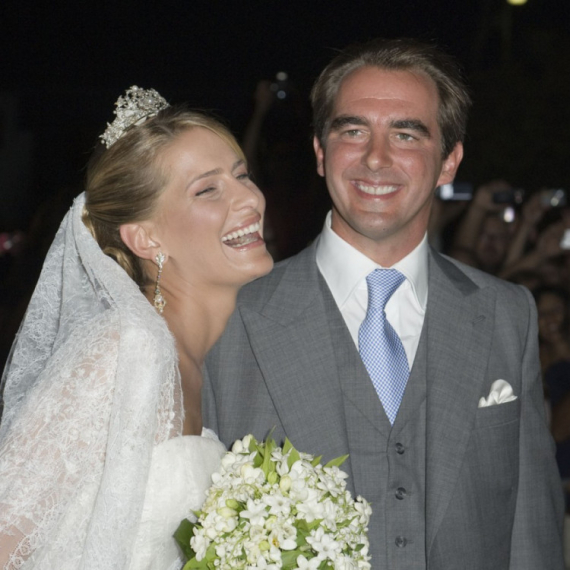









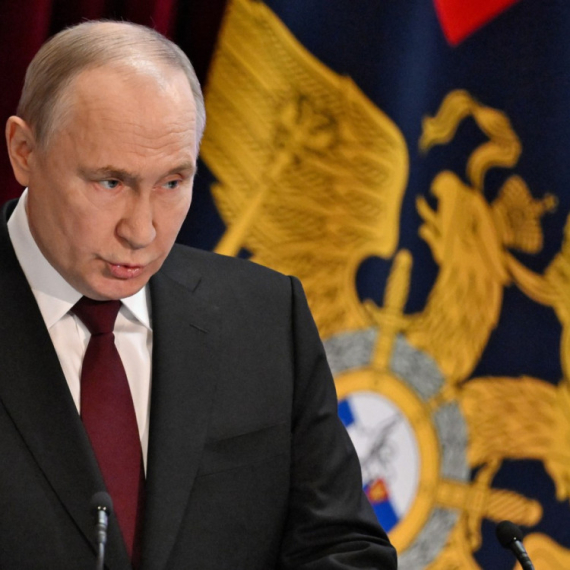
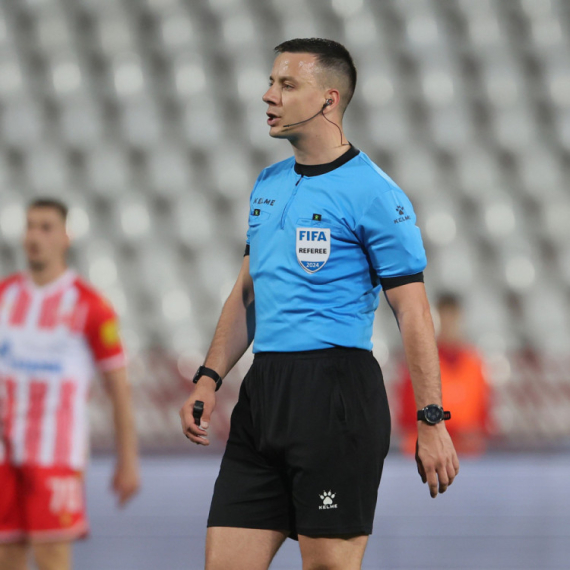
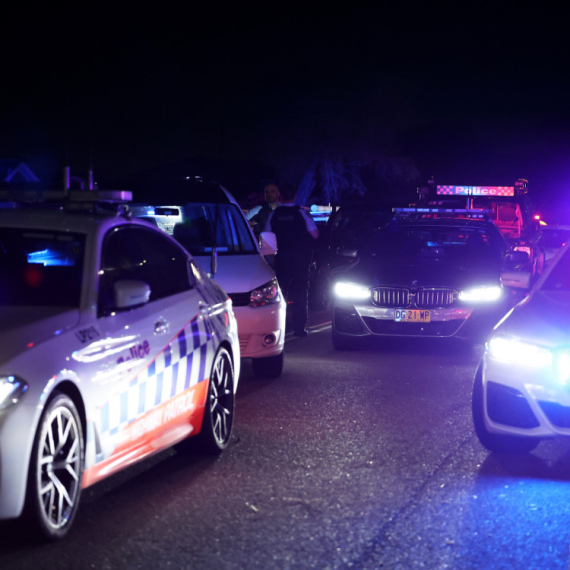
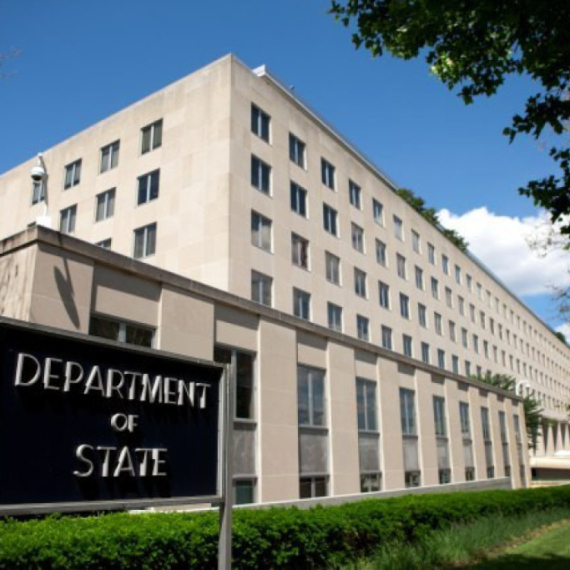
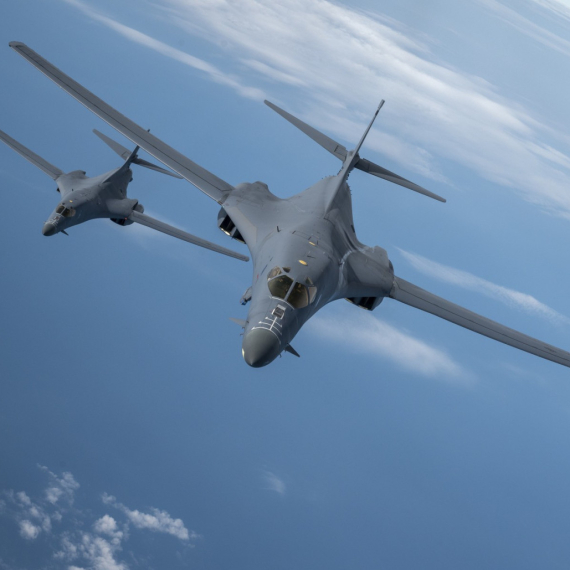


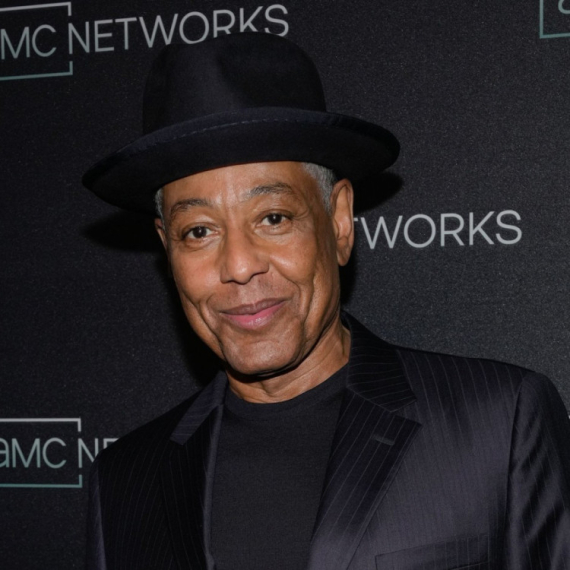
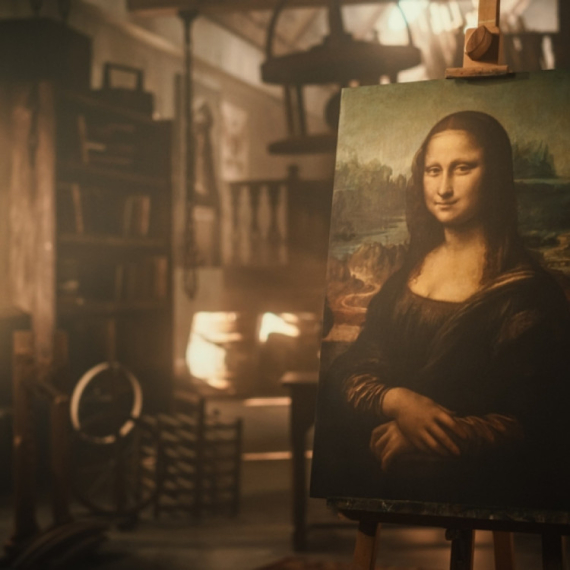








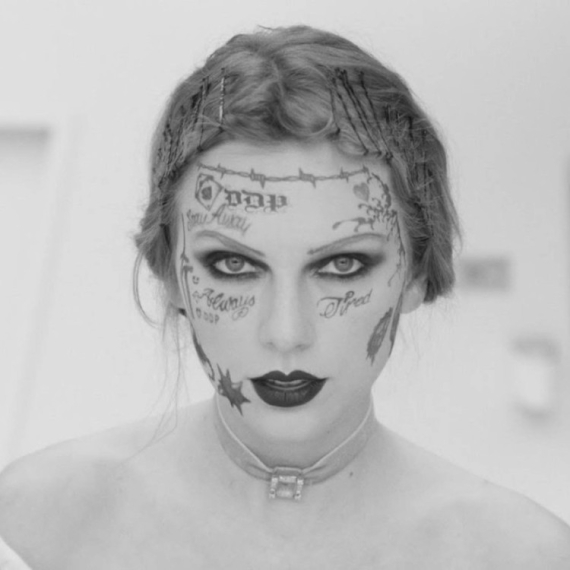

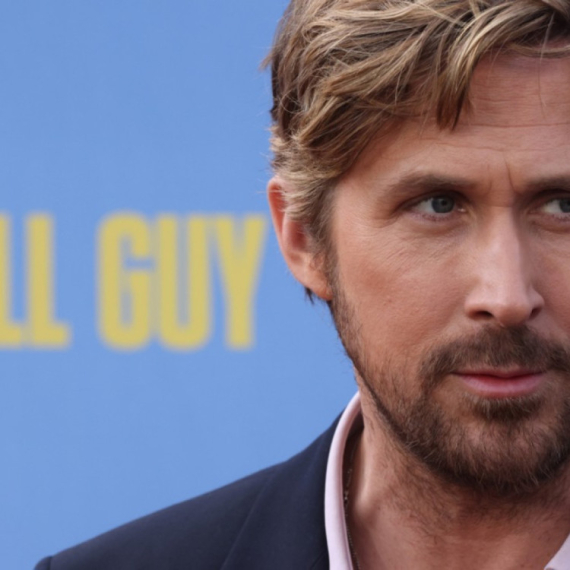





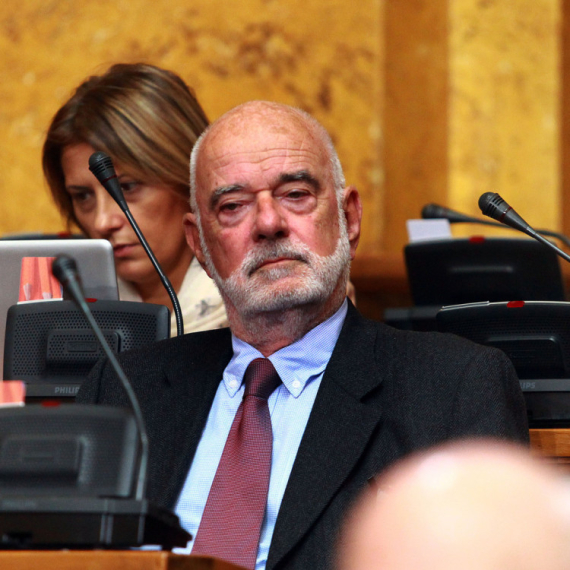

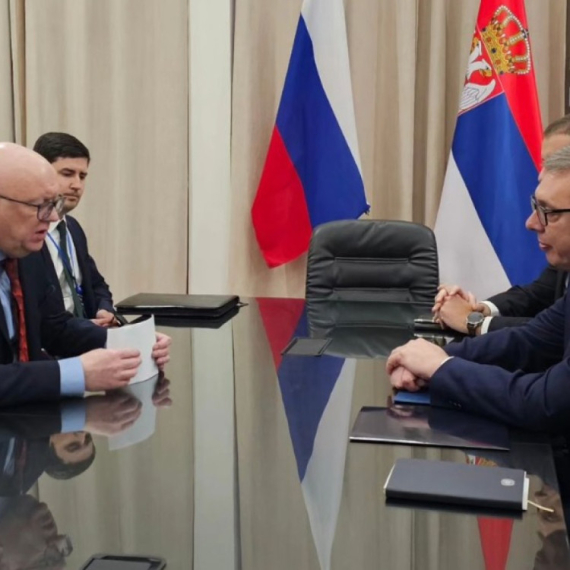




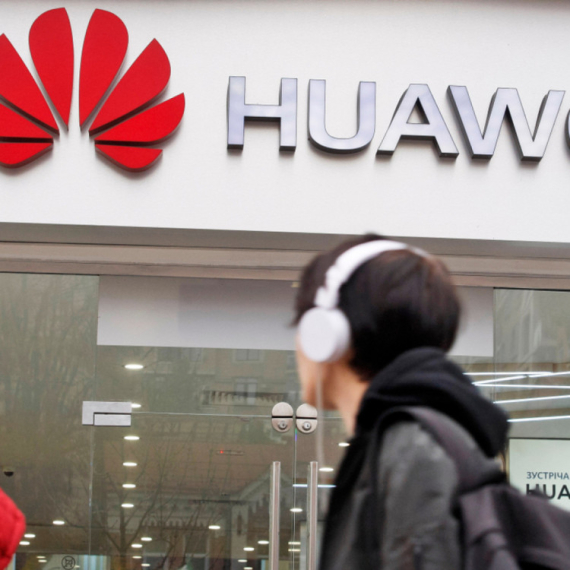
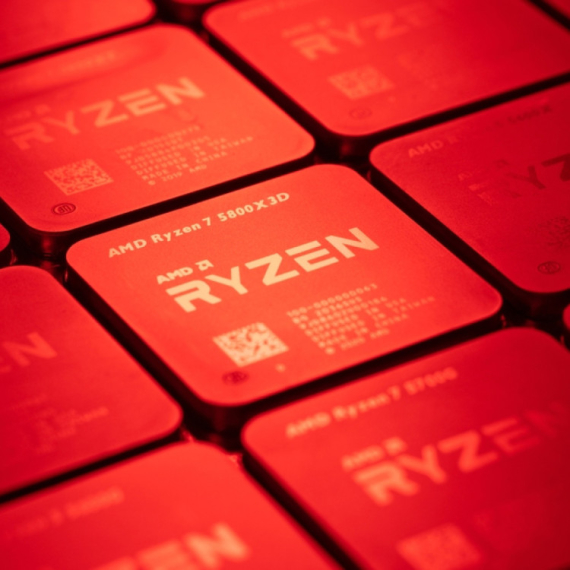

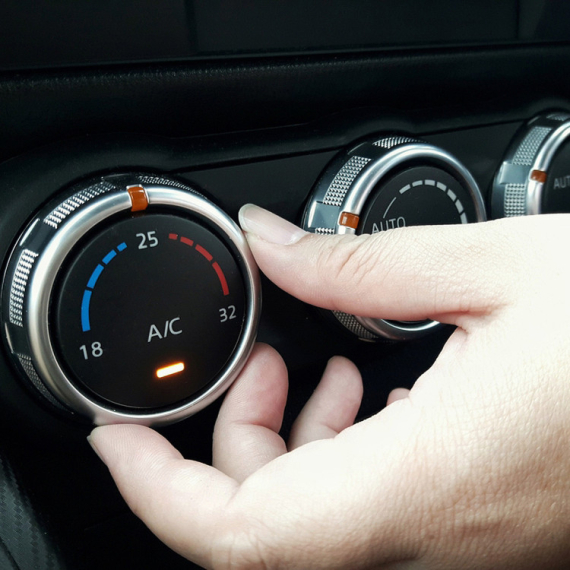
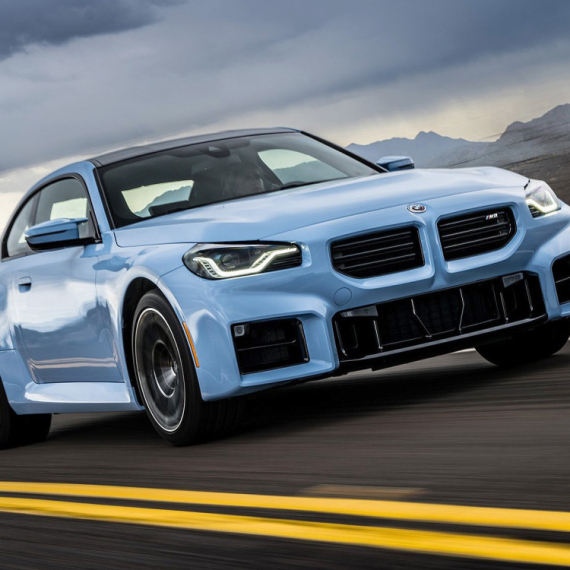
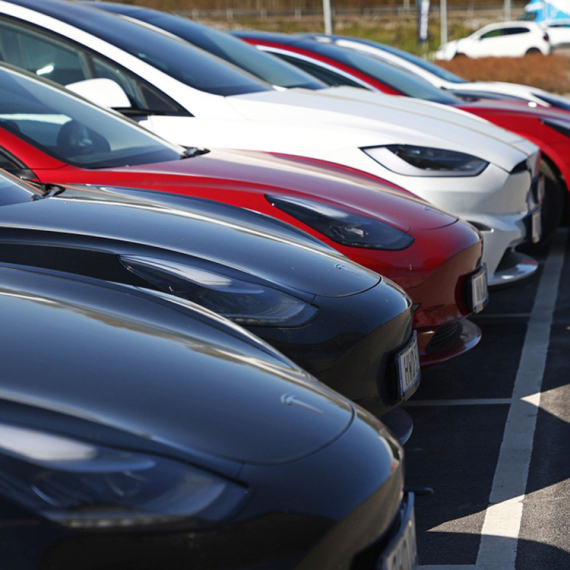
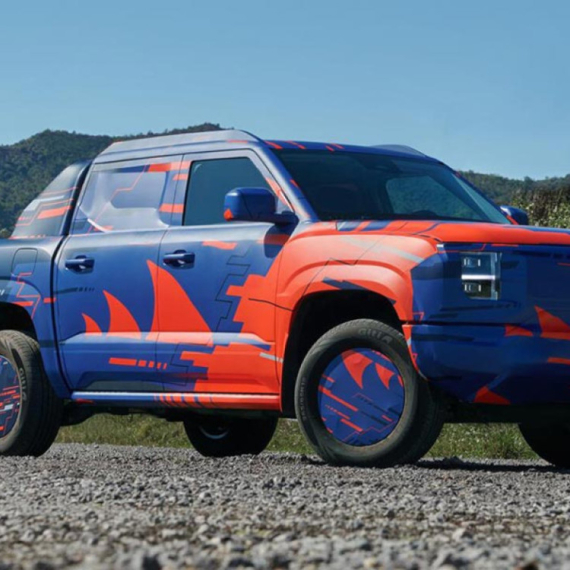
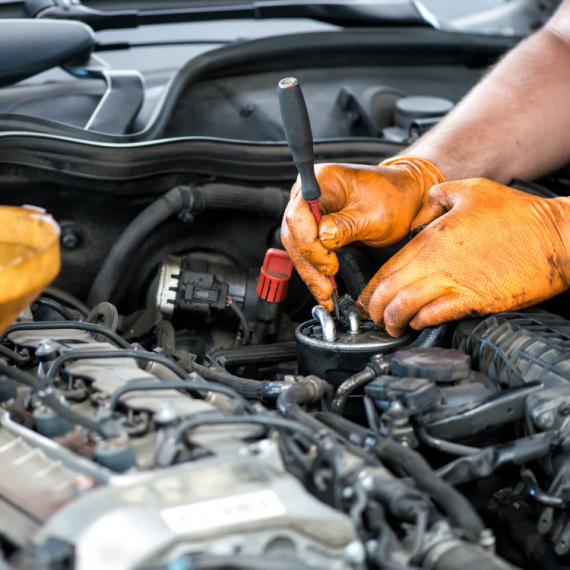

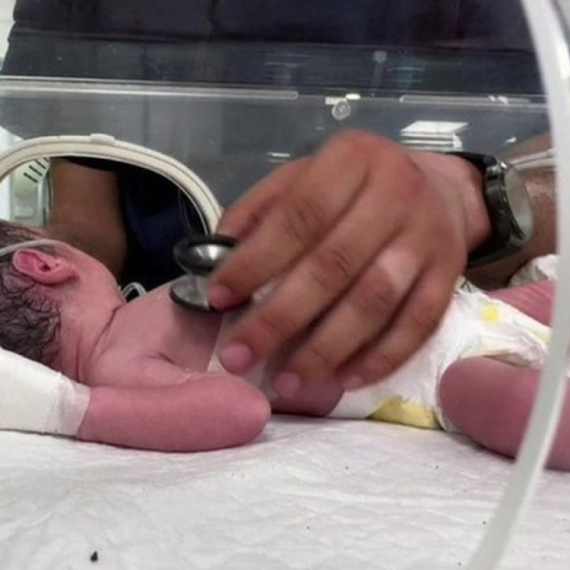
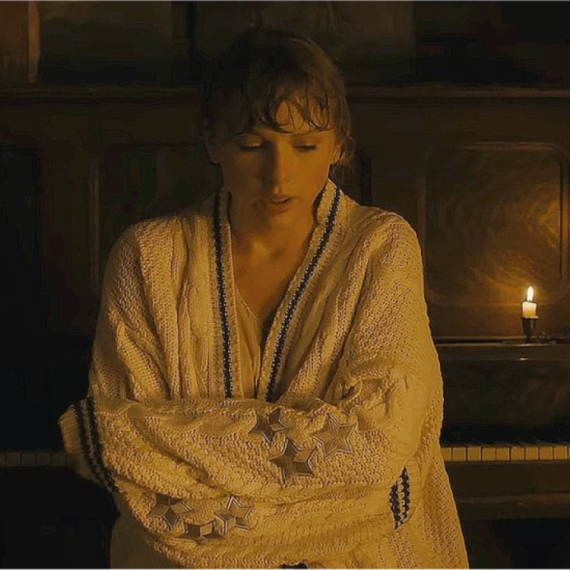
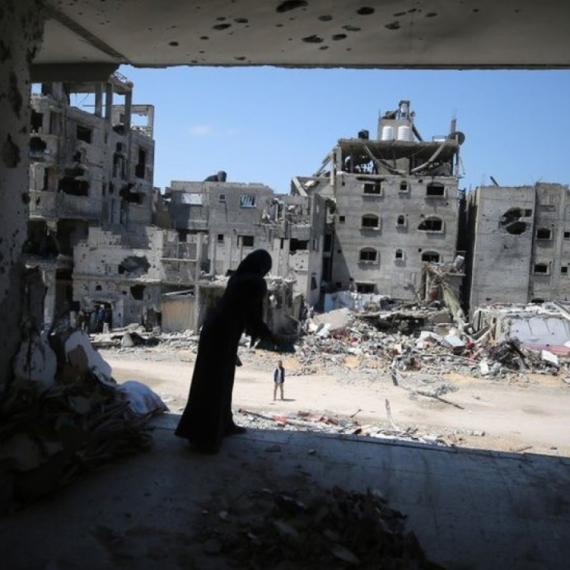
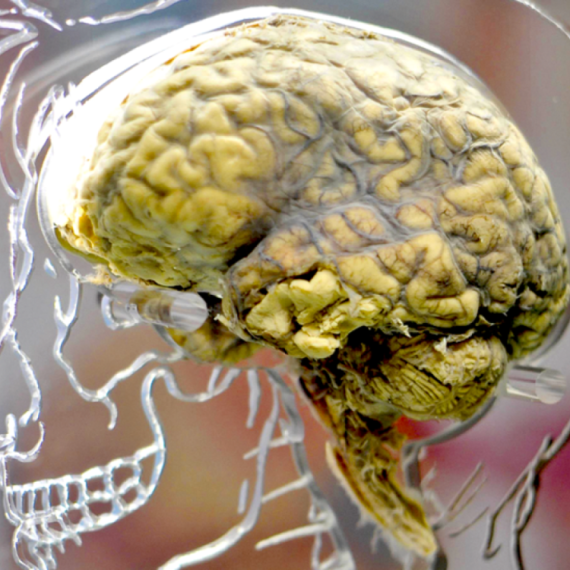

Komentari 0